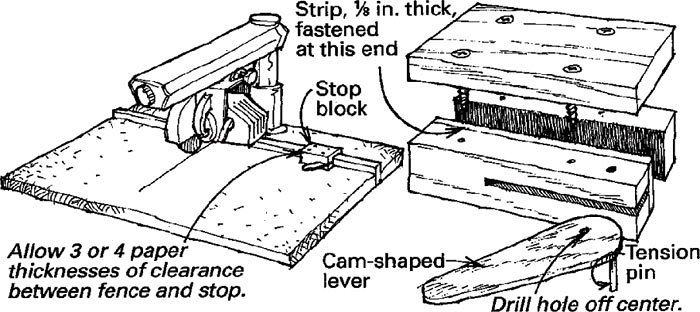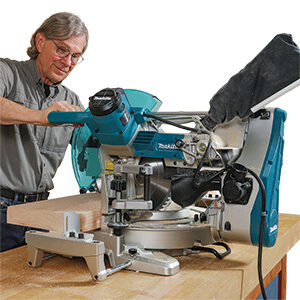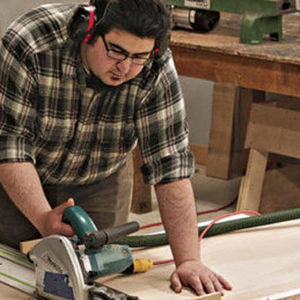Stop for a Radial-Arm Saw Fence

A fence stop for a radial-arm saw should be quick to set, reset and remove. It should be inexpensive to make, immovable when locked and unaffected by packed sawdust. The fence stop illustrated above, which operates on a cam-clamp principle, meets all of these criteria.
To make the stop, I recommend using solid oak or maple. Start by roughing out the top, front and back. Set the dimensions of the fixture so that the front and back ride above the saw table a bit to allow for sawdust. Cut a slot for the cam lever in the front, and then make the 1/4-in.-thick cam lever with a 1-1/8-in. semicircle on one end tapering to a 3/8-in. semicircle on the other. Drill the cam’s pivot hole off center (5/32 in. or so), and install it with a tension pin. Then attach a 1/8-in.-thick face strip (glue and screw a pair of tiny, flat-head screws at one end). The strip should be free along half its length. Secure the front piece to the top using glue and a pair of screws, and place this assembly on the fence. Using three or four sheets of 20-lb. paper to allow clearance, glue and screw the back piece to the assembly. The fixture should slide over the fence smoothly, but grip the fence when the cam is turned. To complete the fixture, trim both ends to 90¡ using the radial-arm saw.
John B. Moon, Mount Vernon, Wash.
Fine Woodworking Magazine, December 1992 No. 97

Fine Woodworking Recommended Products

Makita SP6000J1 Track Saw

Bosch 12V Trim Router

Festool DF 500 Q-Set Domino Joiner




















Log in or create an account to post a comment.
Sign up Log in